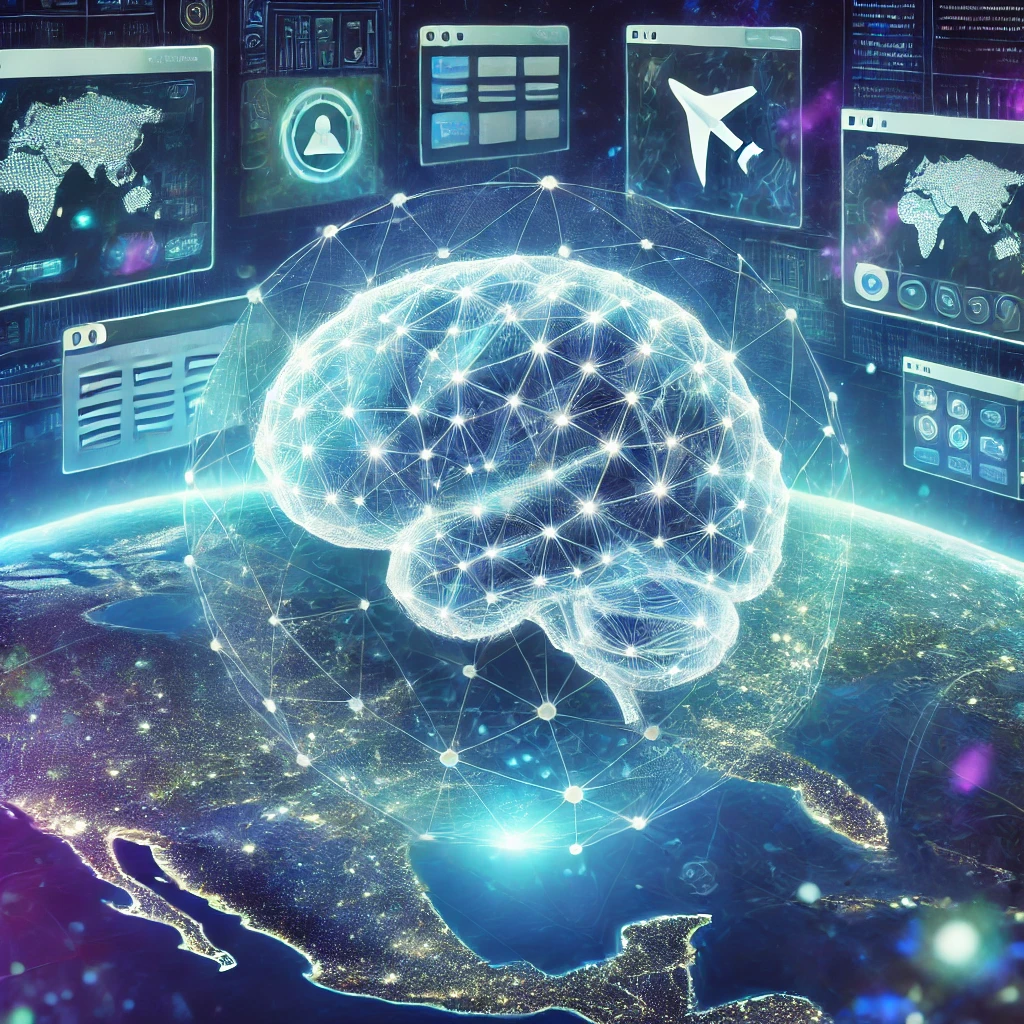“Generative AI in travel is transforming how Online Travel Agencies enhance customer service and operational efficiencies”
What is Generative AI?
Generative AI consists of sophisticated algorithms designed to create content from vast datasets. These systems generate responses and suggestions with a human-like understanding, proving invaluable in enhancing customer service and operational efficiency in the travel industry.

Historical Impact of AI on OTAs
For years, AI has assisted in predicting pricing trends and tailoring destination recommendations within the travel industry. The introduction of generative AI has deepened this integration, providing dynamic tools that enhance how OTAs interact with customers.
Current Applications of Generative AI in OTAs
Enhancing Customer Interaction
Today’s travel platforms utilize generative AI to power chatbots. These bots provide real-time assistance, handling bookings and troubleshooting in a style that mirrors human interactions. They address immediate needs and refine their capabilities over time. Moreover, this AI crafts personalized travel recommendations, influencing decisions with precision.
Optimizing Back-End Operations
Generative AI excels in automating routine tasks such as managing bookings and cancellations. This not only reduces costs but also minimizes errors. It also adjusts prices based on real-time market data, optimizing revenue management for OTAs.

Future Trends and Predictions
AI-Driven Personalization
In the future, generative AI is likely to transform personalization in travel planning. It could curate complete itineraries based on individual preferences, revolutionizing how OTAs engage with customers and foster loyalty.
Beyond Booking: Comprehensive Travel Planning
Generative AI could integrate transportation, accommodations, dining, and activities into a unified service. This would simplify the travel planning process, enhancing the overall user experience by creating seamless travel itineraries.
Challenges and Considerations
Data Privacy and Security
With the increased use of generative AI, ensuring data privacy and security becomes crucial. OTAs must implement robust protections and adhere to privacy regulations to maintain trust and credibility.
The Human Element in AI Implementation
Maintaining a balance between AI automation and human interaction is essential. Sometimes, the personal touch of human interaction is irreplaceable in travel. As the industry adopts more AI-driven processes, it’s vital to consider the employment implications and aim for solutions that enhance rather than replace human roles.

Case Studies
Real-World Applications and Success Stories
Expedia and Booking.com are notable examples where AI has refined search functions and optimized pricing strategies, thereby enhancing customer satisfaction and operational efficiency. These success stories highlight AI’s potential to streamline operations and innovate customer engagement in travel.
Generative AI is rapidly redefining the standards of the travel industry, especially within OTAs. It promises more personalized, efficient, and integrated travel experiences. For travelers, this means planning trips is now more exciting and tailored to individual tastes. As we look forward, generative AI is not just about smarter bookings but about creating richer, more delightful travel experiences. Let’s embrace this new technology wave, where the journey is as joyful as the destination itself.
To explore further, consider reviewing this study on AI’s transformative role in tourism and this analysis of AI-driven personalization in travel. These resources offer deeper insights into how technology is changing not just travel booking but the entire travel experience.
FAQ:
-
- What is generative AI and why is it important in travelGenerative AI involves sophisticated algorithms that create data-driven outputs to enhance customer service and streamline operations in the travel industry.
- How does generative AI enhance customer interactions in OTAs
It powers AI-driven chatbots for real-time assistance and tailors travel recommendations based on individual customer preferences. - What are the operational benefits of generative AI for Online Travel Agencies?
Generative AI automates routine tasks, optimizes pricing strategies, and enhances revenue management, significantly reducing costs and minimizing errors. - What future trends are predicted for generative AI in travel?
We expect AI-driven personalization to deepen, providing more tailored travel planning, and integration of comprehensive travel services into seamless experiences. - What are the challenges of integrating generative AI in OTAs?
Key challenges include ensuring data privacy and security, maintaining a balance between AI automation and human interaction, and considering the employment implications within the industry.
-
-
- What is generative AI and why is it important in travelGenerative AI involves sophisticated algorithms that create data-driven outputs to enhance customer service and streamline operations in the travel industry.
- How does generative AI enhance customer interactions in OTAs
It powers AI-driven chatbots for real-time assistance and tailors travel recommendations based on individual customer preferences. - What are the operational benefits of generative AI for Online Travel Agencies?
Generative AI automates routine tasks, optimizes pricing strategies, and enhances revenue management, significantly reducing costs and minimizing errors. - What future trends are predicted for generative AI in travel?
We expect AI-driven personalization to deepen, providing more tailored travel planning, and integration of comprehensive travel services into seamless experiences. - What are the challenges of integrating generative AI in OTAs?
Key challenges include ensuring data privacy and security, maintaining a balance between AI automation and human interaction, and considering the employment implications within the industry.
-




